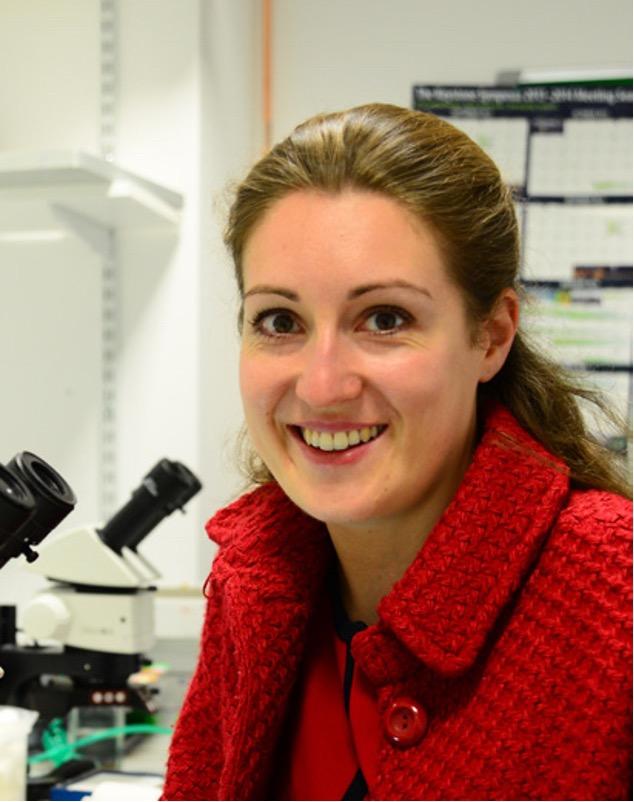Dear colleagues,
In today's newsletter, we will share with you a summary of March’s "Grant writing support for ECRs" webinar and announce our next webinar on the topic "Redox control of aging". At the end of the newsletter, as always, you can also find a collection of upcoming events (check out the travel awards for the Thiol-Based Redox Regulation and Signaling Gordon GRS) with important deadlines and some suggestions of interesting redox reads recently published.
March’s webinar
On March’s webinar we enjoyed one inspiring talk on the topic "Grant writing support for ECRs":
Orientation, guidance and tips and tricks for successful grant writing for early career scientists
Isabel Fabregat, PhD
Bellvitge Biomedical Research Institute (IDIBELL), Barcelona, Spain
Dr. Fabregat gave an eye-opening talk about grant writing. We would like to share with you some of the main points of her presentation as we think this topic is of crucial importance for early career researchers.
What are strong points in an application/interview for a postdoctoral position?
You should read the requirements for the application and create a checklist with all the documents that you need to attach to the proposal. Even if it’s not requested, always propose potential referees who can speak for you. That includes supervisors, collaborators or also mentors.
Educate yourself about the group’s research line and tell the reviewers why you are interested in it. You should also tell them why the position is adequate for you by describing your career goals and how the position is in line with them or how it could advance your career. Think about a training plan, identify three to five training objectives for the skills you would like to acquire in the project and how you will develop them (attending courses, institution internal training…).
What to avoid?
You shouldn’t feel unsure or unprepared. If you like the position, just apply, even if you don’t know all the required techniques, you can always learn them.
Don't be afraid to ask for the independence you would like, regarding publication and supervision.
What should be included in the CV when applying for a postdoctoral fellowship/grant?
Work experience, previous positions/fellowships, participation in research projects, presentation of results in conferences (oral communications and invited talks should be highlighted), relevant publications (specify if you were first, co-senior or co-corresponding author), relevant attended courses, teaching experience, academic awards. You must prepare the CV specifically for the call you’re applying to, not only regarding the format, but also the content and what to highlight in your CV.
Which are the differences in fellowship/grant applications when it’s your first postdoc or when you are a senior postdoc? What is expected in the project proposal?
If you’re applying for your first postdoc you might not have published the main results of your PhD yet. In that case, you need to reinforce the CV in the part of explaining your experience. If you’re applying for your second, third… postdoc, your PhD must be published, and the focus must be on the experience in the first postdoc if results are not published yet, you must show that your results in a project are good.
What are the differences between a PhD and a postdoc?
During your PhD years, you might have probably dedicated 80% or more of your time to your experimental research project. As a postdoc, you must balance your new research project with reading/writing papers about the topic of your research, designing experiments, generating new ideas, supervising students, and perhaps also teaching. Planning is more important than ever and weekly templates turn out very useful.
I’m applying for my first grant after the postdoc, should the topic be different from my postdoctoral research project?
If you feel comfortable and you like the research topic of your postdoc, you can continue in that direction when applying for your first grant as PI. But the project must contain new ideas, new questions, new methodologies. It must be clear that you are proposing something original even if still related to the topic of your postdoc project.
If you are applying for a fellowship/grant to be developed in your postdoc lab, independence from your supervisor must be guaranteed and it’s expected that you will be the corresponding author of your projects.
How ambitious should my proposal be? What do I need to pay special attention to?
Ambition depends on the team. If you will be working alone, you need to plan a project which will be feasibly developed by one person. If the grant includes a budget for personnel, you need to bear in mind how many people you could hire and what could be realistically done. The project must also be logistically and financially feasible. You should always be ambitious, if possible, about cutting-edge technology.
You need to consider that reviewers will evaluate the CV of the PI and the team, the scientific significance and innovation, experimental approach and environment. In addition, the proposal may be given an overall impact score. In the case of biomedical grants: you should include the translational impact and the eventual benefits of the project for patients.
I want to write my first project as PI, which are the most important aspects?
Understand the call: adequacy to the topic, read the guide for applicants. At all times, ask yourself how your proposal will stand according to the criteria listed.
Anticipation: start writing several months before the deadline, many months if it is an ERC Starting Grant. Book several weeks for writing before the deadline. Get plenty of feedback, look for local expertise, ask people who got ERC starting grants for feedback.
Title and abstract: they are very important, they must be as concise as possible and prepared to be understood by not specialised reviewers.
Length of the proposal and language: it is always limited, and that’s a good thing. Get to the point quickly. Use a clear language, short sentences and be as concise as possible.
Sell yourself! Write a complete CV and if possible, incorporate in the most relevant papers (first, last author) an explanation of the relevance of the results.
Research plan: propose a high-risk, high-gain project, but logistically and financially feasible.
Background: you need to present the state of the art and show your knowledge of the topic. It shouldn’t be very long, but enough to understand the hypothesis and objectives. If possible, incorporate preliminary, unpublished results from your group.
Project development: write a clear hypothesis, a general objective and detailed objectives. Have a clear structure and workplan, divide the project in tasks with milestones and deliverables. Include a detailed Gantt chart! Research milestones are critical points in a research project that indicate progress and provide a framework for achieving goals. These milestones help researchers track their advancement and ensure they are on the right plan. Project deliverables are the tangible results that the project team must produce to achieve the project objectives, they are specific, measurable, and time-bound, clearly indicating the project progress.
Include schemes, flow diagrams, to facilitate the evaluation.
In most of the applications, the CV of the PI is the only one that is presented. Change that, describe the team, the expertise of each one of the members and how they will ensure the development of the project.
Last but not least: you should take special time to correctly fill the following sections: scientific dissemination of the results, dissemination to the general society, technology transfer plan, ethical issues, gender issues. This part is 30% or more of the final points in EU projects and absolutely necessary.
From the ECR subcommittee we would like to thank Isabel for her wonderful presentation!
Webinar series “Emerging leaders in redox biology”
Our next webinar will be on 9th April 2024 at 15:00 CET on the topic “Redox control of aging” featuring Daphne Bazopoulou and Helena Cochemé. 
The impact of early-in-life redox signaling in health, aging and disease
Daphne Bazopoulou, PhD
Biology of Stress and Aging Lab, Department of Biology, University of Crete, Greece
Daphne has been at the University of Crete as a student (B.Sc., M.Sc. and Ph.D.) and since 2021 as an Assistant Professor and Group Leader (Biology of Stress and Aging Lab). In between the two, she consecutively held 2 postdoc positions at the University of Michigan (Departments of Mechanical Engineering and Molecular, Cellular & Developmental Biology) and embarked on an interdisciplinary journey of exploring organismal aging and mechanisms that dictate it and co-founding a spin-off. Her studies in C. elegans revealed that inter-individual differences in developmental Reactive Oxygen Species (ROS) levels contribute to variations in stress resistance and lifespan and provided the first demonstration of a redox-regulated histone methylation event. Daphne has also worked with microfluidic-based platforms for exploring the effects of aging and age-related pathologies in neurons and performed chemical screens for identifying compounds that delay or reverse the age-dependent decline in the functionality of the C. elegans nervous system. Her team is currently involved in the study of ROS as adaptive signals for improving homeostasis, stress resistance and longevity and the impact of environmental stressors on organismal health and survival.

Redox signaling in aging
Helena Cochemé, PhD
Redox Metabolism Group, MRC Laboratory of Medical Sciences, London, United Kingdom
Helena is a UKRI Investigator at the MRC Laboratory of Medical Sciences (LMS), where she leads the Redox Metabolism group. She is also an Honorary Senior Lecturer at Imperial College London. She received her PhD in Biochemistry from the University of Cambridge in 2006, at the MRC Mitochondrial Biology Unit in the group of Prof. Mike Murphy, where she first developed her interest in mitochondrial oxidative stress and redox biology. She started working with Drosophila in 2007 as a post-doc at the Institute of Healthy Ageing, UCL in the laboratory of Prof. Linda Partridge. As part of her postdoctoral work, she characterized the mitochondria-targeted H2O2 probe, MitoB, and demonstrated that mitochondrial H2O2 levels increase in vivo with age. She established her own independent group at the LMS in 2013 and was promoted to Programme Leader Track in 2018. Research in the Cochemé lab is focused on the impact of redox signaling in aging and metabolic disorders, mainly using Drosophila as an in vivo model system. She is particularly interested in dissecting the role of redox-responsive cysteines in regulating survival, by applying a combination of redox proteomic and genetic knock-in approaches. Ultimately her goal is to uncover novel evolutionary conserved pathways and processes implicated in aging as potential therapeutic targets for health and longevity benefits.
More information about the ECR Subcommittee can be found on the SFRR-E website (ECR Committee), while regular updates can be found on Twitter (@SFRR_Europe), Instagram (@sfrr_ecr) and LinkedIn (SFRR-E). For any question or suggestion you might have, you can contact us via email:
Hope to see you online for our next Webinar Series appointment,
The ECR subcommittee
Upcoming events:
UK Redox Network Meeting
- 17 April 2024
- Location: London, UK
- Possibility to attend in person or online
- Further information: https://UKRedoxNetwork2024.eventbrite.com
6th International Conference on Reactive Oxygen and Nitrogen Species in Plants
- 29 - 31 May 2024
- Location: Antibes Juan-les-Pins, France
- Deadlines: Early bird registration: 31 March 2024
- Further information: https://www.alphavisa.com/pog/2024/index.php
SFRR-E Annual Meeting
- 5 - 7 June 2024
- Location: Istanbul, Turkey
- From Molecules to Tissues: Redox Biology in Action
- Further information: https://www.redoxistanbul2024.com
6th International Aryl Hydrocarbon Receptor (AHR) Meeting 2024
- 12 - 15 June 2024
- Location: Düsseldorf, Germany
- Deadlines: Registration: 31 May 2024
- Further information: https://ahr-2024.de
Thiol-Based Redox Regulation and Signaling Gordon Conference
- GRS: 13 - 14 July 2024
- Deadline: applications must be submitted by 15 June 2024, any applicants who wish to be considered for an oral presentation should submit their application by 7 April 2024.
- Further information:
- https://www.grc.org/thiol-based-redox-regulation-and-signaling-grs-conference/2024/
- GRC: 14 - 19 July 2024
- Deadline: applications must be submitted by 16 June 2024
- Location: Castelldefels, Barcelona, Spain
- Further information:
- https://www.grc.org/thiol-based-redox-regulation-and-signaling-conference/2024/
The deadline for applications is June 1, 2024. Please note that for some awards an abstract must be submitted prior to the GRS deadline of April 7, 2024. Send an email to
Thanks to the support from the Company of Biologists, two travel awards ($940 each) are offered for young scientists traveling to the conference from outside of Europe.
Thanks to the support from SFRR-E, four registration fee waivers/travel grants (300 € each) are offered for young scientists traveling to the conference from within Europe.
Thanks to support from the US National Science Foundation (NSF), 20 travel awards are available to young scientists within the US who are presenting a talk and/or poster: 10 travel awards ($300 each) for the GRS meeting and 10 travel awards ($1200 each) for the GRC meeting.
11th International Conference on Oxidative Stress in Skin Medicine and Biology
- 12 - 15 September 2024
- Location: Andros Island, Greece, Greece
- Deadlines:
- Abstract Submission: 30 June 2024
- Further information: http://oxstress.pharm.uoa.gr
FEBS Advanced Lecture Course
- Redox biochemistry: cellular responses and disease relevance
- 30 September - 6 October 2024
- Location: Spetses, Greece
- Deadlines:
- YTF and Grant Applications: 15 April 2024
- Registration & Abstract Submission Closing: 15 April 2024
- Further information: https://redoxbiochemistry2024.febsevents.org
HNE Club Meeting
- Lipid Oxidation: New Biochemical Insights and Clinical Applications
- 10 - 12 October 2024
- Location: Genoa, Italy
- Deadlines:
- Abstract submission: 30 April 2024
- Further information:
- https://www.sfrr-europe.org/media/attachments/2024/03/07/new_hne_flyer.pdf
SfRBM 2024 Conference
- 31st Annual Conference
- 20 - 23 November 2024
- Location: Savannah, Georgia, USA
- Deadlines:
- Online Registration & Abstract Submission Open: 10 May 2024
- Abstract and Awards Deadline: 15 August 2024
- Early Registration Deadline: 2 October 2024
- Further information: https://sfrbm.org/meetings/sfrbm-2024/
Interesting Redox Reads:
Gutierrez, V., Kim-Vasquez, D., Shum, M., et al. The mitochondrial biliverdin exporter ABCB10 in hepatocytes mitigates neutrophilic inflammation in alcoholic hepatitis. Redox Biol (2024). https://doi.org/10.1016/j.redox.2024.103052
Jackson, B. T. & Finley, L. W. S. Metabolic regulation of the hallmarks of stem cell biology. Cell Stem Cell (2024). https://doi.org/10.1016/j.stem.2024.01.003
Vogel, F. C. E., Chaves-Filho, A. B., & Schulze, A. Lipids as mediators of cancer progression and metastasis. Nat Cancer (2024). https://doi.org/10.1038/s43018-023-00702-z
Demicco, M., Liu, X. Z., Leithner, K. & Fendt, S. M. Metabolic heterogeneity in cancer. Nat Metab (2024). https://doi.org/10.1038/s42255-023-00963-z
Haynes, P. R., Pyfrom, E. S., Li, Y., et al. A neuron–glia lipid metabolic cycle couples daily sleep to mitochondrial homeostasis. Nat Neurosci (2024). https://doi.org/10.1038/s41593-023-01568-1
Jacquemyn, J., Ralhan, I. & Ioannou, M. S. Driving factors of neuronal ferroptosis. Trends Cell Biol (2024). https://doi.org/10.1016/j.tcb.2024.01.010
Dixon, S. D. & Olzmann, J.A. The cell biology of ferroptosis. Nat Rev Mol Cell Biol (2024). https://doi.org/10.1038/s41580-024-00703-5
Redox Job Opportunities:
Position: PhD Student
Topic: Fluorescent Biosensors in Neurodegenerative Diseases.
Institute: VIB-VUB Center for Structural Biology (Brussels).
Deadline: 1 May 2024.
Further information: https://jobs.vib.be/j/73328/phd-student-position-fluorescent-biosensors-in-neurodegenerative-diseases
